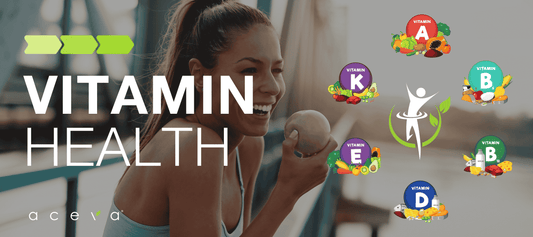A sinus support and immune enhancement formulation

N-acetyl-L-cysteine (NAC) is a highly bioavailable modified form of the amino acid L-cysteine that supports glutathione synthesis in the body. Glutathione is a crucial tripeptide that has important antioxidant roles in humans.[1] Since L-cysteine is rarely found in foods, and not well-absorbed, it tends to be a limiting factor of glutathione production throughout the body.
Glutathione is one of the body’s major endogenous antioxidants and is also involved in many metabolic reactions; low levels of this small peptide are correlated with high levels of oxidative stress and impairments in nearly every system in the body.[2],[3] Thus, supplementation with NAC, which acts to maintain proper concentrations of glutathione in the body, can help support many factors of health and well-being.[4]
Read on to learn more about how NAC works in the body as well as how to use it for optimal longevity.
How NAC Works
Much of the L-cysteine ingested through diet and/or supplementation is suggested to be lost to first-pass metabolism.[5] This is where NAC comes into play, as its structural difference makes it more resistant to metabolism and thus more L-cysteine can be distributed to the body (resulting in increased glutathione production).[6]
Moreover, NAC supplementation increases glutathione concentrations in the body more than supplementing with glutathione itself since glutathione is rapidly broken down by the intestines.[7] As alluded to earlier, glutathione serves as a crucial antioxidant throughout the body by neutralizing free radicals and reactive oxygen species. It has also been shown that glutathione plays a role in regulating the nitric oxide cycle, which is critical for proper blood flow and vascular function.*[8]
Lastly, glutathione is involved in a multitude of metabolic reactions affecting every system in the body, especially the nervous system, immune system, and gastrointestinal system.[9],[10],[11] Thus, NAC acts to support nominal glutathione concentrations in the body and many critical cellular functions.*3
Benefits of Taking NAC
Given the importance of sufficient glutathione levels in the body for supporting overall health and longevity, supplementation with NAC can benefit users in a variety of ways.* The most relevant researched-backed benefits derived from supplementation with NAC include:
- Supports metabolic reactions in body systems, especially the immune, nervous, respiratory, and gastrointestinal systems*
- Acts as an antioxidant in the body to regulate oxidative stress*
- Supports nitric oxide production and vascular function*
NAC Dosing Recommendations
Literature confers that benefits of NAC supplementation become most apparent around 700mg per day. Aceva Sine Aid contains 200mg of pharmaceutical grade NAC per serving, among a host of other nutrients with beneficial properties, especially for relieving sinus pressure.


The Aceva Quality Difference
Sine Aid contains pharmaceutical grade NAC, is produced in a cGMP facility and has a 100% guarantee.
*These statements have not been evaluated by the United States Food and Drug Administration. These products are not intended to diagnose, cure or prevent disease. The information presented on this site is not intended to replace advice from your physician, healthcare professional or information found on the product label or packaging. You should always consult with a qualified healthcare professional before taking any of these products, especially if you are pregnant, nursing or taking prescription medications.
References:
[1] Masella, R., Di Benedetto, R., Varì, R., Filesi, C., & Giovannini, C. (2005). Novel mechanisms of natural antioxidant compounds in biological systems: involvement of glutathione and glutathione-related enzymes. The Journal of nutritional biochemistry, 16(10), 577-586.
[2] Dringen, R. (2000-12-01). “Metabolism and functions of glutathione in brain”. Progress in Neurobiology. 62 (6): 649–671.
[3] Meister, A. (1991). Glutathione deficiency produced by inhibition of its synthesis, and its reversal; applications in research and therapy. Pharmacology & therapeutics, 51(2), 155-194.
[4] Atkuri, K. R., Mantovani, J. J., Herzenberg, L. A., & Herzenberg, L. A. (2007). N-Acetylcysteine—a safe antidote for cysteine/glutathione deficiency. Current opinion in pharmacology, 7(4), 355-359.
[5] Frank Giorlando MBBS, B. (2011). N-acetylcysteine in psychiatry: current therapeutic evidence and potential mechanisms of action. Journal of psychiatry & neuroscience: JPN, 36(2), 78.
[6] Sjödin, K., Nilsson, E., Hallberg, A., & Tunek, A. (1989). Metabolism of N-acetyl-l-cysteine Some structural requirements for the deacetylation and consequences for the oral bioavailability. Biochemical pharmacology, 38(22), 3981-3985.
[7] Witschi, A., Reddy, S., Stofer, B., & Lauterburg, B. H. (1992). The systemic availability of oral glutathione. European journal of clinical pharmacology, 43(6), 667-669.
[8] Clementi, E., Brown, G. C., Feelisch, M., & Moncada, S. (1998). Persistent inhibition of cell respiration by nitric oxide: crucial role of S-nitrosylation of mitochondrial complex I and protective action of glutathione. Proceedings of the National Academy of Sciences, 95(13), 7631-7636.
[9] Generally, G. S. H. (1997). Multiple roles of glutathione in the central nervous system. Biol. Chem, 378, 793-802.
[10] Dröge, W., & Breitkreutz, R. (2000). Glutathione and immune function. Proceedings of the Nutrition Society, 59(04), 595-600.
[11] Chu, F. F., Esworthy, R. S., & Doroshow, J. H. (2004). Role of Se-dependent glutathione peroxidases in gastrointestinal inflammation and cancer. Free Radical Biology and Medicine, 36(12), 1481-1495.




